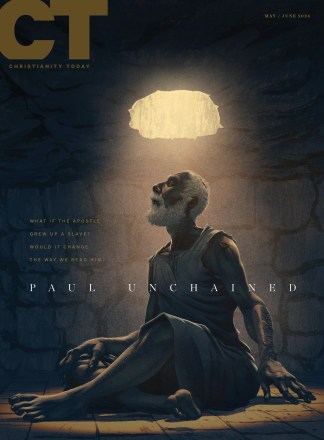One recent sunny afternoon, I stopped at a park near my son’s school to take a phone call. As I sat down on the edge of Radnor Lake, I noticed a part of the shoreline appear to slowly break off near where I was sitting. It was a giant snapping turtle hidden in the mud, camouflaged in sticks and algae. I must have startled it, because it pushed off for a swim.
I thought about the noisy plans we make while the rest of creation goes about its business. I also wondered: Just as turtles retreat at the possibility of danger, in what ways do we do the same?
Our fears are so varied and constant that we often hide in the safety of the edges, avoiding conflict or controversy. We are anxious about the myriad dangers at our doorstep, whether societal woes or political insecurities.
Especially in this election year, we have allowed our burdens to overwhelm us, and as a consequence the common ground even in our churches has eroded.
We divide over our definitions of moral virtue. We fear falling to the extremes but, in doing so, miss out on the moderate discourse that could bring gospel unity even in our diversity. We want stronger bonds and a brighter future but don’t know how to go about building them.
We prove true the line in T. S. Eliot’s famous poem Burnt Norton: “human kind / Cannot bear very much reality.” So often, we settle for blending in with our surroundings like the turtle.
But Scripture calls us out into deeper waters. Avoiding risk and conflict is not the foundation for real peace; the fear of the Lord is. And his word animates us to pursue it (Ps. 34: 11–14). Christians are called to seek peace and to pray for the cities in which we live (Jer. 29:7).
Unchecked fear keeps us on the run and fuels our disagreements, but God’s power and providence over us allow us to find security in his care. When we look to him, he will deliver us from all our fears and give us wisdom to navigate the complexities we face.
We need wisdom in troubled times. But we cannot conjure it by ourselves. If we seek him, God’s wisdom abounds to us—the same wisdom that enables him to be the one who “breaks the bow and shatters the spear” and “makes wars to cease to the ends of the earth” (Ps. 46:9). These passages outline God’s poetic power, and the psalm concludes with a word to us: “Be still, and know that I am God … I will be exalted in the earth” (v. 10).
In an anxious age, this stillness might just be one of our greatest acts of worship.
Before you watch or read the news, stillness. Before you cast your vote, stillness. Before you make dinner, stillness. To worship God in this way is to point to his faithfulness, past, present, and future. It bolsters our hearts to endure more of this present reality—not as avoiders or cynics but as messengers of hope.
When our anxious fears take their place under the holy fear of the Lord, we become teachable (Prov. 1:7). The fear of the Lord calls us to admit when we’re wrong. The fear of the Lord gives us courage to speak up for what’s right even when it’s unpopular. And the fear of the Lord reminds us that we are not our own but belong to Christ, that he is God and we are not. He draws us out of hiding, engaging us to be ministers of reconciliation (2 Cor. 5:18).
Beside the turtles at Radnor Lake, I listen for the subtle song of creation. I become a student of stillness, as Eliot writes,
at the still point of the turning world …
Where past and future are gathered.
And when I go back to my work of writing songs, I find myself speaking less and noticing more, swimming to deeper waters and hearing the stories of others—whether my musical collaborators, my children, my neighbors, or even my enemies.
In view of God’s mercy and to seek peace, we must seek stillness first and look to the Reconciler who has made us to be reconcilers too. God has come to bring hope and beauty to this wounded world, and we get to play a part.











